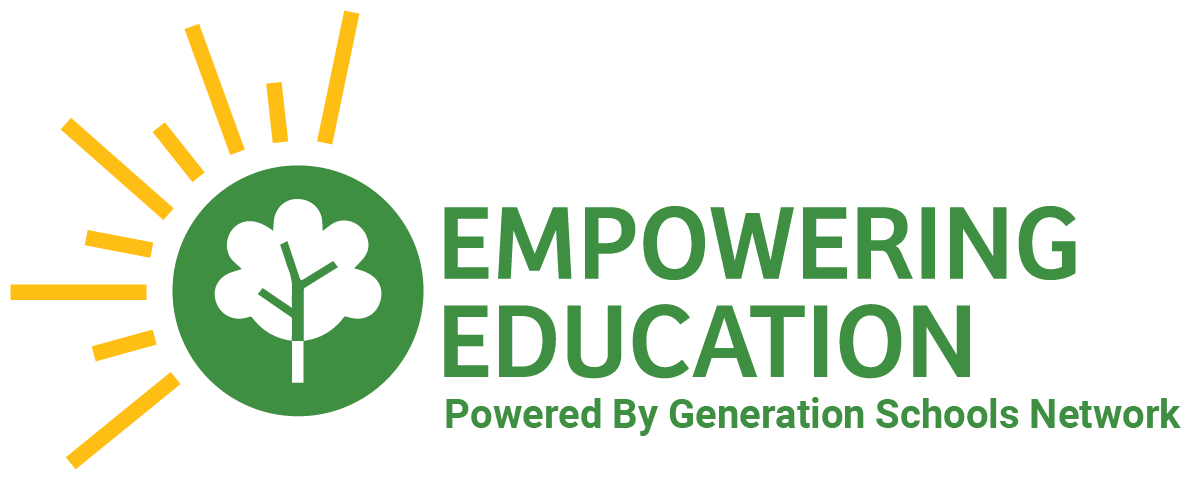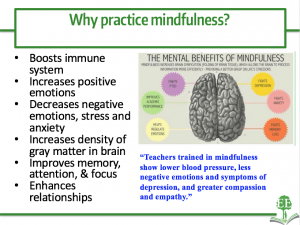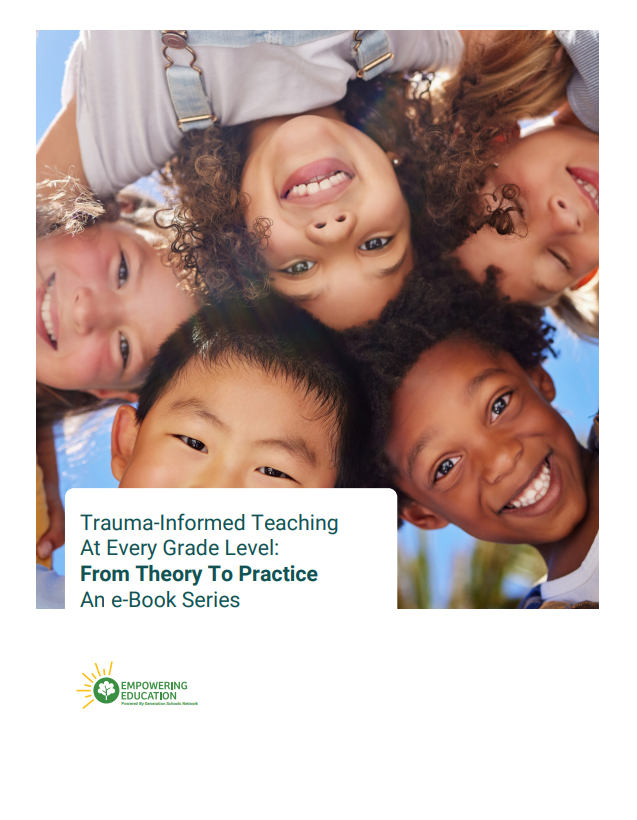The past several decades have seen a marked increase in the use of mindfulness-based interventions to promote psychological health and well-being. According to Burke (2009), the use of mindfulness-based approaches with adult populations has been well documented to lead to positive psychological health and well-being. It is estimated that over 2,000 peer-reviewed articles demonstrating the benefits of mindfulness interventions have been published in the last few years alone. Research on adult-based interventions has even shown that mindfulness-based interventions have substantial effects on chronic physical and mental health problems. However, while there is ample research on the benefits and impacts of mindfulness with adult populations, there is limited (but growing) research on mindfulness practices with youth (Kuyken, et. al, 2013).
With the evidence supporting effective results from adult populations practicing mindfulness, many schools and researchers around the world are growing more interested in mindfulness with students. This article provides a brief overview of several studies demonstrating positive outcomes associated with mindfulness-based interventions geared specifically towards youth.
Kuyken, et. al (2013) studied over 500 youth aged 12 to 16 in six secondary schools. The researchers compared students in the intervention group (students who participated in a mindfulness-based program) to students in a control group (students who took part in the usual school curriculum). The researchers found that students participating in the intervention reported fewer depressive symptoms post-intervention. At a follow-up three months after the intervention, the students in the intervention group also reported lower stress and greater well-being.
Impact of Mindfulness in Schools
Burnett (2009) has studied the impact of mindfulness in schools and found that mindfulness is a form of stress management and can lead to stress reduction that can be effectively applied in schools. As a part of social and emotional learning programs, mindfulness can be incorporated in the daily classroom routine to address self-awareness, management of feelings and emotions, and help promote calming practices when students are angry, frustrated, or anxious (Burnett, 2009).
Weare (2013) completed a thorough and extensive literature review on mindfulness-based approaches with youth. Weare concluded that when mindfulness approaches are taught and practiced regularly in a school setting, they have been shown to improve:
- mental health and well-being
- mood
- self-esteem
- self-regulation
- positive behavior
- academic learning.
Weare (2013) also encourages schools to not avoid mindfulness-based approaches due to a lack of time in the school day. Rather, mindfulness-based interventions can be included throughout the school day and are typically popular between staff and students alike.
While there is a clear need for further research on the impact of school-based mindfulness programs, there are also a number of obstacles to overcome in researching this topic. Primary among these obstacles is the general difficulty of obtaining reliable and valid data from school systems. Data privacy laws, cost, multiple interventions at one site, and varying degrees of implementation fidelity all make robust research a significant challenge. Empowering Education is actively seeking to contribute to the field of mindfulness-based SEL research through multiple research partnerships and a long-term goal of conducting a rigorous randomized controlled trial.
The Link Between Teaching Mindfulness and Student Outcomes
That said, teachers and schools who have already adopted our curriculum or similar programs implicitly understand the link between teaching mindfulness and positive student outcomes. This has been particularly true of our partner schools that are most heavily impacted by poverty and trauma. Teachers in these schools consistently report that mindfulness is one of their favorite times of the day and that they feel it is a life-long skill that they can teach their students no matter what their circumstances are. Indeed it is difficult to argue against the practice of increasing awareness, attention, and compassion.
The Empowering Minds curriculum incorporates the best of mindfulness, cognitive behavioral theory, neuroscience, restorative approaches and cultural responsiveness to empower students with the skills of self-awareness, self-management, social awareness, relationship skills, and responsible decision making. Empowering Minds lessons blend together research-based mindfulness interventions with social and emotional learning best practices.
 About the Author: Charlie Merrow has over a decade of experience working with youth across the world in the United States, Southeast Asia, and Sub-Saharan Africa as an educator and mentor. His passion lies in promoting education equity and youth development through mindfulness and inclusive practices. Charlie is a PhD student studying education and human development, a licensed special education teacher, a Returned Peace Corps Volunteer, and a registered yoga instructor.
About the Author: Charlie Merrow has over a decade of experience working with youth across the world in the United States, Southeast Asia, and Sub-Saharan Africa as an educator and mentor. His passion lies in promoting education equity and youth development through mindfulness and inclusive practices. Charlie is a PhD student studying education and human development, a licensed special education teacher, a Returned Peace Corps Volunteer, and a registered yoga instructor.
References:
Burke, C. A. (2009). Mindfulness-based approaches with children and adolescents: a preliminary review of current research in an emergent field. Journal of Child and Family Studies, 19, 133–144.
Burnett, R. (2009). Mindfulness in schools. Learning lessons from the adults – Secular and Buddhist Report. Retrieved July 2018, from www.mindfulnessinschools.org
Kuyken, W., Weare, K., Ukoumunne, O. C., Vicary, R., Motton, N., Burnett, R., & Huppert, F. (2013). Effectiveness of the Mindfulness in Schools program: non-randomized controlled feasibility study. The British Journal of Psychiatry, 203, 126–131.
Weare, K. (2013). Developing mindfulness with children and young people: a review of the evidence and policy context. Journal of Children's Services, 8(2), 141-153




